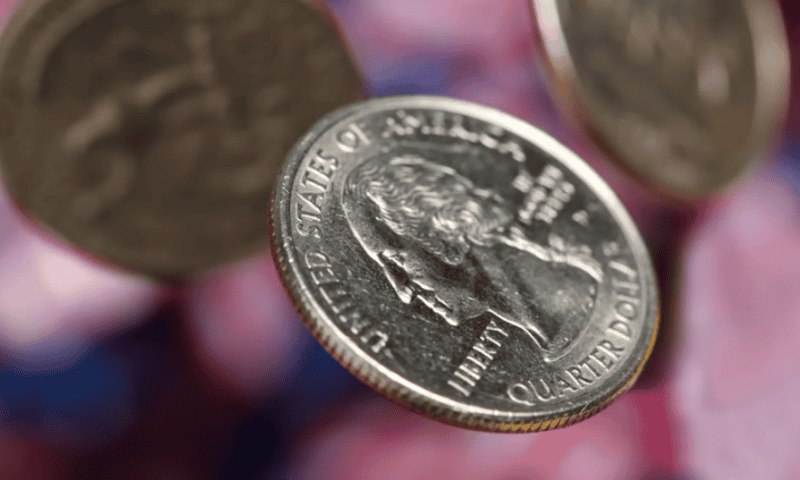Gilead placed its “best and final” offer to buy CymaBay on Jan. 30: $32.50 per share in cash. But the biotech’s board wanted exactly 50 cents more.
The hangup over two quarters (per share, mind you) were detailed in regulatory documents filed by CymaBay on Friday. The Securities and Exchange Commission documents reveal that CymaBay was being chased by several parties, but Gilead was the only one that ever made a formal offer, which added up to $4.3 billion overall. The companies announced the transaction on Feb. 12.
CymaBay discussed possible deals with 22 biopharma industry companies between 2022 and into early 2024. Also included in the discussions, which didn’t necessarily focus on a full buyout, were Kaken Pharmaceutical, which Cymabay had a previous deal with, and four other unnamed main companies.
CymaBay and Gilead met at the J.P. Morgan Healthcare Conference in January 2023, during which the biotech presented an overview of the seladelpar program. The companies did not have any further discussions on an immediate transaction.
But in September 2023, CymaBay announced that seladelpar had been successful in a phase 3 trial called RESPONSE in primary biliary cholangitis. The study achieved all primary and key secondary endpoints. Gilead’s Senior Vice President of Corporate Development Devang Bhuva reached out to CymaBay CEO Sujal Shah to congratulate him on the data—and to set up a call.
Gilead wanted to know more about seladelpar to inform whether it was time to put in an offer to buy out the biotech. With more detailed data from the program due in November and a competitor preparing results in the same indication, CymaBay decided it was time to entertain Gilead. A meeting was held on Oct. 20, 2023 between the two companies. At the time, CymaBay was worth around $14.27 per share.

Around this time, CymaBay also met with two other companies to discuss the seladelpar program, who expressed interest in a possible transaction.
The additional RESPONSE data came out as planned, further strengthening the case for seladelpar and providing a $2 boost to CymaBay’s shares. Gilead’s Bhuva again called Shah for an update on the program.
On Nov. 20, Gilead CFO Andrew Dickinson and Bhuva called with the official offer: $23 per share, which Shah declined. The offer “did not provide a basis upon which the company would be willing to continue to explore a potential acquisition of the company or permit [Gilead] to advance to a more extensive phase of due diligence discussions.” On that same day, CymaBay’s shares closed at $18.66 apiece.
At a meeting to discuss the Gilead proposal, the board considered whether a formal auction process might be appropriate to seal a deal with a third party. Ultimately, they determined there were too many potential downsides to such a process and agreed that the company should pursue other parties that may be interested in an acquisition.
In December, CymaBay fielded numerous requests for more details from potentially interested companies. Then on Dec. 15, Gilead invited Shah to dinner with CEO Daniel O’Day and Bhuva.
At that dinner, Bhuva convinced Shah to continue with due diligence to help Gilead solidify whether it could up the ante.
Into January of this year, meetings with other aspiring parent companies took place to discuss seladelpar’s market opportunity. On Jan. 25, Gilead’s Bhuva and Dickinson came back with another offer: $31 per share plus a contingent value right that would bump up the value by $2.50 per share. Gilead wanted to lock in the deal within two weeks, or by Feb. 12.
CymaBay then reached out to the few other companies that remained interested, expressing that a credible offer had been submitted and they would have to indicate their level of interest in an acquisition to stay in the game.
On Jan. 29, financial advisors for CymaBay asked Gilead to up the offer, specifically increasing the amount of upfront cash instead of the contingent value right.
A day later, Gilead came forward with what was dubbed the “best and final” offer: $32.50 per share in cash, all payable upfront at closing. Gilead also tightened the deadline for the deal to be announced on Feb. 11.
CymaBay’s board met and decided to test Gilead’s willingness to up the offer to $33 per share, while also agreeing to finally grant the pharma access to further due diligence materials via a virtual data room that had been withheld up to this point. Gilead refused to add the 50 cents.
In early February, the remaining companies that had been entertaining an offer dropped out. Shah continued to push for $33 per share, but Gilead wouldn’t budge. Around this time, an application for seladelpar was submitted to U.K. and EU regulators for primary biliary cholangitis with pruritus (itchiness).
With the hours counting down, representatives from both companies met on Feb. 10 and 11 hashing out the final details of the merger, specifically the potential termination fee if the deal were to not go through. The deal was finally approved by CymaBay’s board on Feb. 11 and was announced the next day before the stock market opened.

